#Anita Diamant
Text

anita diamant the red tent
kofi
79 notes
·
View notes
Text
"This is the season when people of all faiths and cultures are pushing back against the planetary darkness. We string bulbs, ignite bonfires, and light candles. And we sing.”
~ Anita Diamant
56 notes
·
View notes
Text
Guess what came in the mail last night!!!
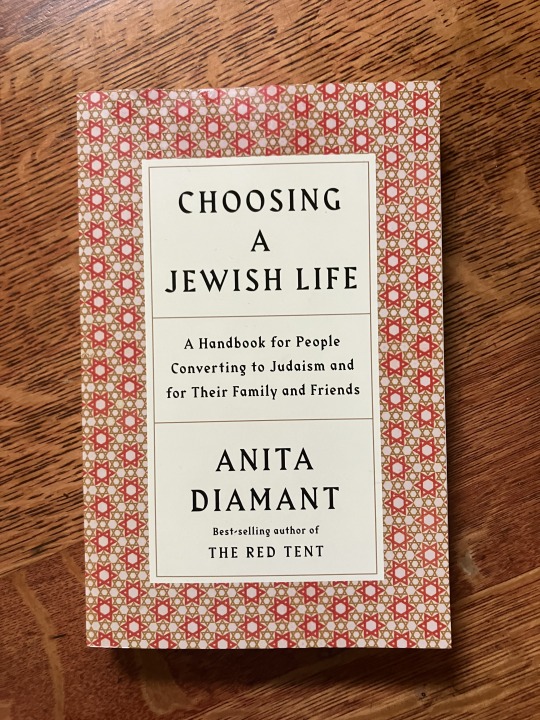
EEEEEEK!! I’m so excited it’s here!
#YAY!! ✡️🎉#I’m also waiting on my order of Jewish Literacy!#Jumblr#Jewish Convert#Jewish Literature#Jewish Books#Books#Choosing a Jewish Life#Anita Diamant#My Post
11 notes
·
View notes
Text
TW: Islamophobia, settler colonial violence, holocaust
So I read “Choosing A Jewish Life” by Anita Diamant like many converts do. There’s a supplementary reading list in the back of it and I thrifted most of them.
I just got After Auschwitz: History, Theology, and Contemporary Judaism by Richard Rubenstein (first published in the 60’s - when I bought it I thought it was written in the 90’s) and I was flipping through it when I came across this horrifying little nugget:

I doubt I need to explain to explain how wildly racist and colonial this is. They were really saying the quiet part out loud in the 60’s!
I don’t give a turquoise fuck if this is a historically significant book. It does not belong on a reading list outside of a classroom setting and I want other converts to know to avoid this, esp. non-white converts.
It’s wild that this sentence has to be uttered but does anyone have any recommendations for books about the effects of the Holocaust on Jewish theology that aren’t casually pro-genocide?
33 notes
·
View notes
Text

I prayed to God for a son who would be a leader, a prince among his people, and God granted my prayer. But I never knew that it would mean losing him." - Dinah, Chapter 7
"Education was a crucial aspect of the upbringing of princes in ancient Egypt, as it was believed that a well-educated prince would make a better ruler. The education of princes was comprehensive and rigorous, with a focus on developing their intellectual and physical capacities." - Toby Wilkinson, "The Rise and Fall of Ancient Egypt"
In ancient Egypt, education for princes was highly valued and was considered an essential aspect of their upbringing. The education of princes was designed to prepare them for their future roles as rulers and was focused on developing their intellectual, physical, and moral capacities.
The education of princes was conducted in specialized schools, known as the "House of Life" or "Per Ankh." These schools were often located within temple complexes, and their curriculum included a wide range of subjects such as writing, reading, mathematics, astronomy, medicine, religion, history, music, and sports.
Princes were taught by highly trained scribes and priests who were experts in their respective fields. The education system was highly structured and rigorous, and the curriculum was designed to develop critical thinking and problem-solving skills.
The education of princes also included training in military and administrative skills. Princes were taught to ride horses, hunt, and fight with weapons. They were also taught the basics of administration, such as how to manage finances and handle diplomatic affairs.
"The education of princes in ancient Egypt was designed to prepare them for the complex role of ruler, which required not only knowledge of administrative and military matters, but also a deep understanding of religion and morality." - John Romer, "Ancient Lives: The Story of the Pharaohs' Tombmakers"
#perioddramaedit#edit#the red tent#theredtentedit#dinah the red tent#anita diamant#rebecca ferguson#rfergusonedit#remose#history edit#historyedit#history#egyptian history#egypt#ancient egypt#ancient history#dinah#historical women#historical figures#oholibamah#the red tent film#ancient civilizations#egyptian#dinah the Bible#women in bible#women of bible#litedit#historical facts#perioddramacentral#perioddramasource
28 notes
·
View notes
Text
Just as it would be self-defeating for a novice in the kitchen to attempt an elaborate, multicourse dinner, it is not a good idea to take on every aspect of Shabbat observance all at once. Most people begin with Friday night rituals: Lighting candles, eating Challah, singing songs. It may take weeks before even simple acts feel natural, but after a few months of repetition, comfort, and a sense of expertise will come.

From Living a Jewish Life: Jewish Traditions, Customs, and Values for Today's Families (Revised and Updated), published 2023; Anita Diamant (My Ko-Fi Here)
#Living a Jewish Life: Jewish Traditions Customs and Values for Today's Families#Revised and Updated#Anita Diamant#Jewish Studies#Calendar Nonsense#Quote
2 notes
·
View notes
Quote
I am so grateful that you have come. I will pour out everything inside me so you may leave this table satisfied and fortified. Blessings on your eyes. Blessings on your children. Blessings on the ground beneath you. My heart is a ladle of sweet water, brimming over. Selah.
Anita Diamant, The Red Tent
22 notes
·
View notes
Text
"This is the season
when people
of all faiths and cultures
are pushing back
against the planetary darkness.
We string bulbs, ignite bonfires,
and light candles.
And we sing."
Anita Diamant.
"Come together!"
#quote of the day#quote of today#inspiring quote#anita diamant#holiday season#people#faith#our world#our planet#save our planet#fight darkness#bulbs#bonfires#candles#shed some light#togetherness#share#sing#merry christmas#happy hanukkah#happy chanukka#חַג חֲנוּכָּה שַׂמֵחַ#happy kwanzaa#let hope prevail#one world#one vision#peace on earth
10 notes
·
View notes
Quote
In the red tent we knew that death was the shadow of birth, the price women pay for the honor of giving life. Thus, our sorrow was measured.
— The Red Tent (Anita Diamant)
#book quotes#historical fiction#anita diamant#the red tent#death#life#pregnancy#childbirth#family#mothers#babies#grief#loss#sadness#sorrow#philosophy
11 notes
·
View notes
Text
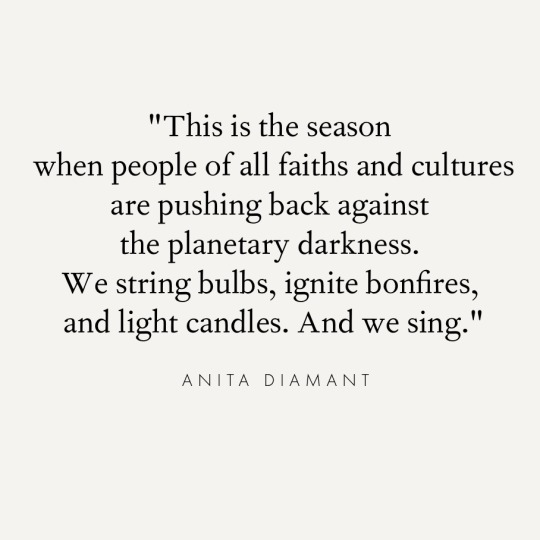
4 notes
·
View notes
Text
I hate it when my fandom is a small niche because no one will care about my rant ahead lol. I am a fan of The Red Tent (The show and the book by Anita Diamant) and I go on Tumblr to find content on it. Long story short I find lovely gifs of the show with Rebecca Ferguson, quotes of the book and such, but unfortunately no metas or fics or people gushing about the story and the characters, which was sadly to be expected. The only thing I find is someone complaining about how the show changed the ending to make it more hopeful, about forgiveness, etc. And I am like, bitch, the show is a whitewashing-of-middle-eastern-characters-mess, it was not as detailed as the book, it was too short and could have done more with the content, the actors are unbelievably and stupidly old for their ages (Especially Dinah in the first episode, Rebecca is beautiful but there is no way I can suspend my disbelief and pretend she is a lovesick teenager, why the hell didn't they use two actresses for her? The passage of time in the show was perfect for that), and so on, but you know what what good about it? (Other than the costumes and the settings of course)
It fixed the bookʼs crappy ending. There, I said it. I don't care how supposedly “deep” it is, or being told I just don't get it. It is just my truth and you are free to disagree.
You see, when I got to the end of the book I was met by a very depressing and dull experience where Dinah suddenly stopped loving all of her brothers, even Joseph, despite the fact they were breadfed together and each other's best friends growing up. I get her hatred and unforgiving attitude towards Simon and Levi and even the rest of the older brothers, but Joseph? Who had nothing to do with the massacre other than a comment he didn't seriously mean and was around her age when it happened? The author just wanted to shock the readers at this point.
What is more, in the show it could have been understandable for Dinah to be ambivalent towards Joseph, since he tried to get her son killed for almost assassinating him, but in the book it is actually Joseph who spares his life and sends him away instead without ANY coercion from Dinah. Dinah just continues to hate him in the book for no reason because he is part of her past and she wants to forget her past and his existence took her son away from her even though that was literally 100% the sonʼs fault for trying to kill a literal statesman out of revenge with WITNESSES around without learning the full story of what happened to his father, who was killed by Simon and Levi only and not all of Dinahʼs brothers lol
lmao It just makes Dinah come out as heartless and cruel, especially considering she gets some second hand account about how much Joseph supposedly suffered as a slave, which, because this takes creative liberties (Which I am 100% fine with btw), is an even greater amount of suffering than implied in the Bible (He is said to have been beaten and raped by his masters or the slave traders before getting to Potiphar in this book, which actually makes sense, him being a slave and this being ancient times and all, and Potiphar is also a creep). But nope, there is no talk of how both siblings have suffered, Joseph as a slave, and Dinah since the loss of her husband and forced separation from her child. They just become strangers, which is frustrating and unsatisfactory. No emotional reunion in the book as there is in the show (Which has a brilliant scene where they meet again that is very satisfying).
The book also has to make all the male characters heatless monsters incapable of remorse or idiots to make Dinah, her son, and her love interests shine (They literally make Joseph an illiterate fool to make Dinahʼs son shine as the “power or intellect behind the power” or whatever, like, this isn't even about uplifting women because this is Dinahʼs son, not Dinah herself, this is pretty much just about making Dinah the only competent or admirable child of Jacob, it is so blatant and annoying it reminds me of Disneyʼs Maleficent idea of telling a complex story and giving voice to voiceless characters, meaning flipping everything around and thinking that does the job) . The show doesn't do this and yet Dinah comes across as a very competent woman, a brilliant midwife, just as she is in he books. She is unquestionably the main character in the show and yet we also get glimpses of Joseph being a learned man, no character assassination needed. You don't have to pick on Joseph, who most imagine to have been learned and literate at some point in his life besides having the prophetic dreams (which makes SENSE even if it is not in the Bible, he was given a position of power for a reason), to make me admire Dinahʼs character.
The end of the show makes Dinah bond with her brother and gives you the impression they stay good friends even if she can't make herself to do the same with her other brothers. This, along with her relationship with Benia, is a huge triumph after so much suffering, a true happy ending, I can see the two of them playing with their children and having meals together. She forgives her father because Joseph forgave her son for trying to kill him, it is lovely, it is a lovely message, and her forgiving her father ties to the original message of the story, paralleling with Joseph forgiving his brothers. Forgiveness doesn't lower Dinah down or have to mean she thinks what her father did was right. It doesn't mean she has to spend time with the people who hurt her. It just means she lets go of the anger. Can this message be annoying for some people who are pressured by society to forgive their abusers? Yes, but in fiction it is better this way because unless the plot is about revenge, forgiveness gives the story closure and meaning, and because the book set the story up to a final encounter with her family, Dinah being as indifferent makes the ending anticlimactic.
In the book, Dinah returning to her homeland is almost there for no reason (I liked her meeting the new generation in her family and learning of the women and girls, granddaughters of her mothers, who are always forgotten, but other than that? Pointless). She doesn't speak to her father or brothers even to ask them why they did what they did or be angry (which was an alternative to the forgiveness arc if your truly hate it that much), she doesn't speak to Joseph either because “muh my past I hate muh past and he sent my son who tried to kill him away”. There is straight up NO REASON FOR HER TO BE THERE. I hate the ending so much it is unbelievable.
So no, random person who is probably among the few to feel strongly about this show/book. The show ending is awesome and way better than the book ending (imo, I have nothing against you random person). Thank you for coming to my niche fandom ted talk.
5 notes
·
View notes
Text
Book Review: The Red Tent by Anita Diamant
The Red Tent
The Red Tent
Anita DiamantMy rating:5 of 5 stars
KindleBible Primer
Historically accurate and Biblically correct, this story fleshed out early history in Egypt and Canaan. Never one to flinch, the author pulls no punches for anybody.View all my reviews.
Amazon
In this modern classic interpretation of the biblical story of Dinah, Anita Diamant imagines the traditions and turmoils of…
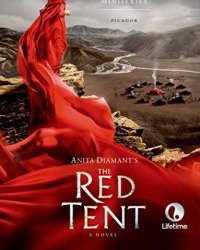
View On WordPress
0 notes
Text
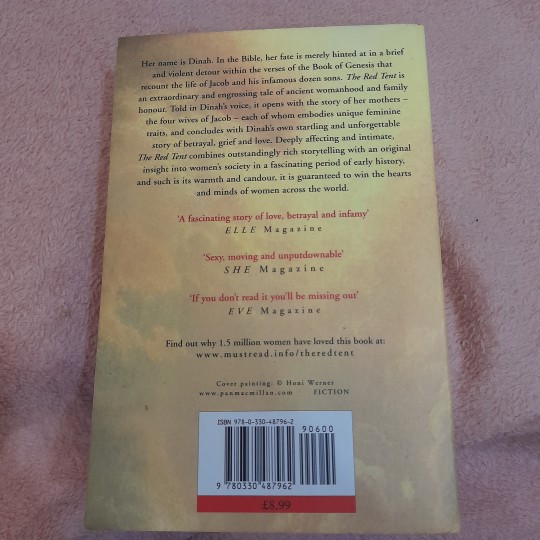
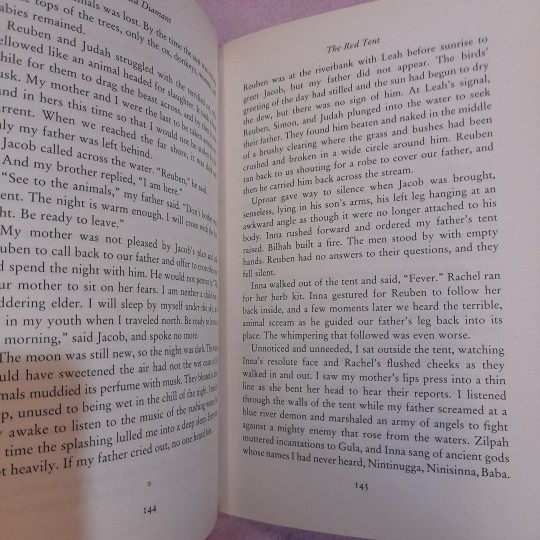
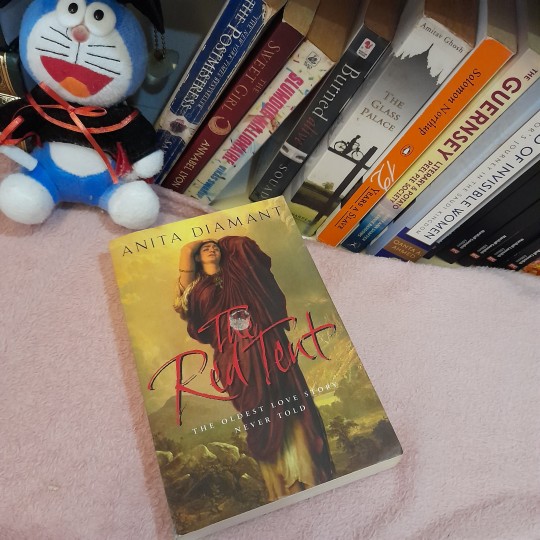
Title: The Red Tent
Score: 4.2/5.0 (Goodreads.com)
Price: RM10
Postage: +RM6 (PENINSULAR MALAYSIA) or RM15 (SABAH/SARAWAK)
.
Summary/Introduction:
.
The Red Tent is a biblical-fiction novel, told in a first-person narrative that tells the story of Dinah, daughter of Jacob and Leah, sister of Joseph. She is a minor character in the Bible, but the author has broadened her story.
.
---
• Check out '[Preloved] The Red Tent - Anita Diamant', available at RM10 on #Carousell:
#the red tent#anita diamant#english novel#paperback#biblical fiction#historical fiction#drama#tragic#dinah#the family of Jacob#goodreads#preloved books#carousell
0 notes
Text
Wistful silences demonstrate unfinished business.
#life#love#literature#novel#fiction#the red tent#anita diamant#dinah#red#tent#scripture#willfulness#unfinished business
1 note
·
View note
Text
Her name is Dinah. In the Bible, her life is only hinted at in a brief and violent detour within the more familiar chapters of the Book of Genesis that are about her father, Jacob, and his dozen sons. Told in Dinah's voice, this novel reveals the traditions and turmoils of ancient womanhood—the world of the red tent. It begins with the story of her mothers—Leah, Rachel, Zilpah, and Bilhah—the four wives of Jacob. They love Dinah and give her gifts that sustain her through a hard-working youth, a calling to midwifery, and a new home in a foreign land. Dinah's story reaches out from a remarkable period of early history and creates an intimate connection with the past. Deeply affecting, The Red Tent combines rich storytelling with a valuable achievement in modern fiction: a new view of biblical women's society.
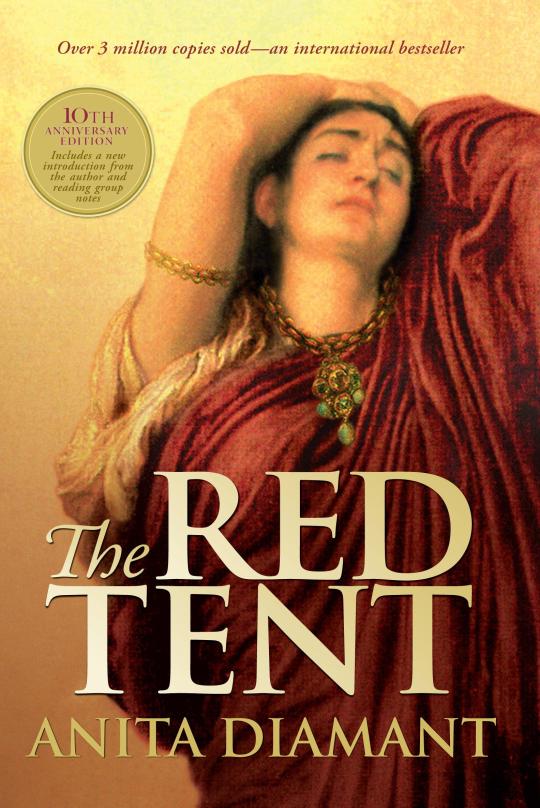
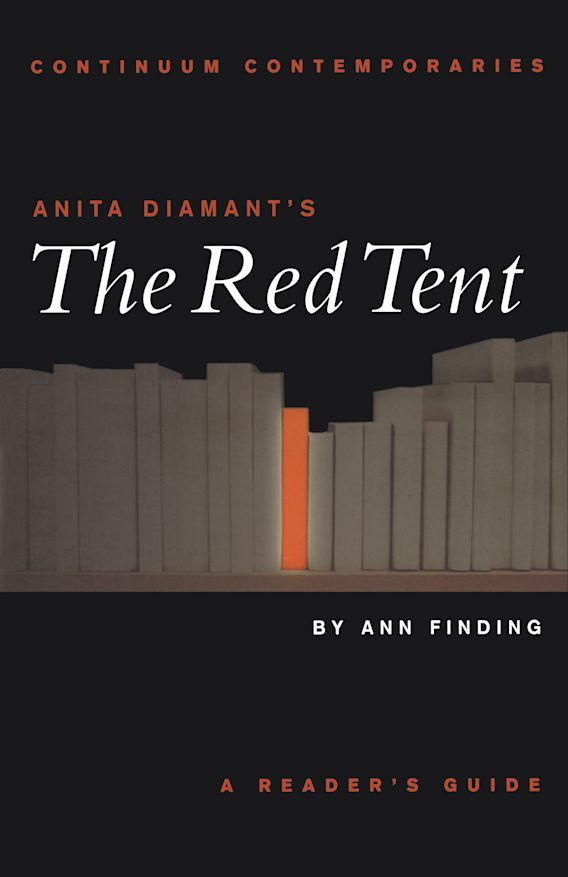
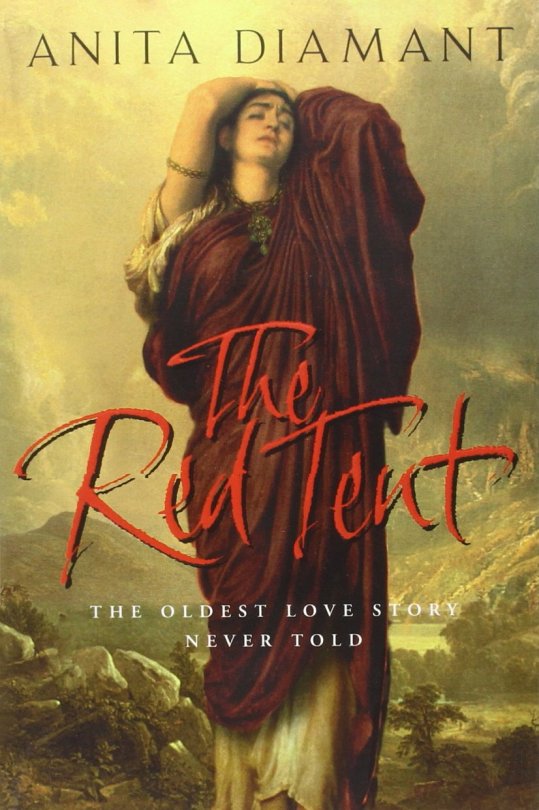
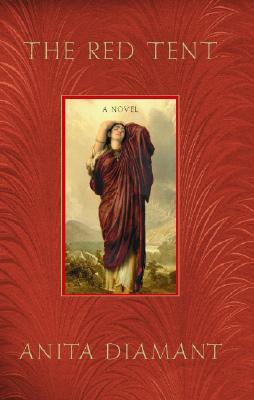


6 notes
·
View notes
Text

Dinah is the only daughter of the patriarch Jacob—at least the only one named. Her mother Leah bore her after six sons and named her “Dinah” (30:21), meaning “her judgment,” although no explanation for her name is given in the biblical account.
The story of Dinah recounts an episode in which she goes out to see the “daughters of the land” but is raped, seduced, and/or abducted by Shechem, a Hivite prince, who subsequently falls in love with and wishes to marry her. While her father is silent, Dinah’s brothers negotiate marriage terms in guile. After all the male residents of the town circumcise themselves (a precondition for intermarrying with Jacob’s family), Simeon and Levy slaughter all the men and rescue Dinah from Shechem’s house. The various responses to the daughter’s debasement the residents of Shechem, Jacob’s, the brothers’, and even Dinah’s silence suggests a multivocal composition which centers on the question of intermarriage with the native “Canaanites” of the land.
With the exception of the opening verse, Dinah is wholly passive in the story; she is acted upon and given no voice. After she returns to her father’s household, she is never heard of again in the biblical narrative, though she is mentioned along with the 66 descendants of Jacob who go down from Canaan to Egypt.
#perioddramaedit#history#edit#rebecca ferguson#rfergusonedit#dinah the red tent#the red tent#theredtentedit#dinah#bibleedit#bible#biblical women#bible women#biblical mythology#biblical#biblicaledit#biblical myth#anita diamant#leah#joseph and dinah#jacob#old testament#egypt#shalem#jewish history#aesthetic#women of history#historical women#canaan#women of bible
50 notes
·
View notes